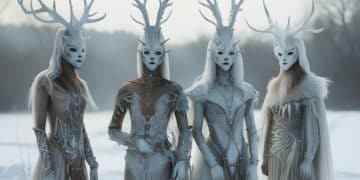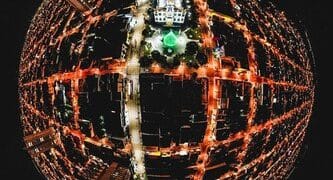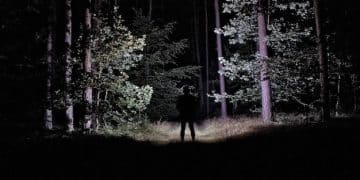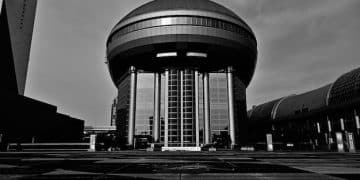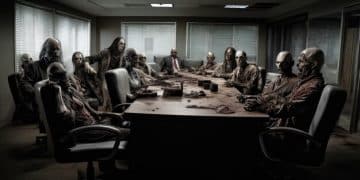Scoia’tael Uprising: Unveiling the Elven Rebellion in The Witcher
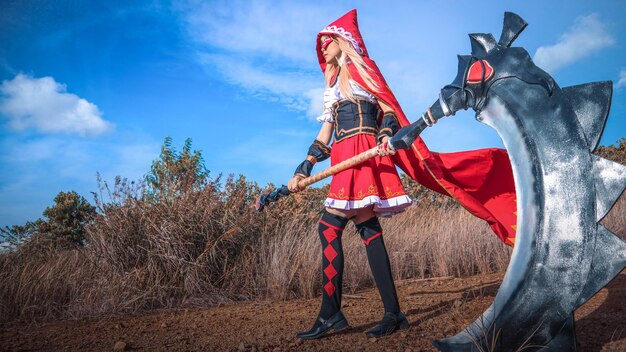
The Scoia’tael Uprising in The Witcher universe was fueled by political marginalization, social injustice, and a desperate desire for autonomy, leading elves and other non-human races to violently resist human expansionism and discrimination.
The world of The Witcher is rich with lore, complex characters, and morally gray conflicts. Among the most compelling factions within this world is the Scoia’tael, a band of guerilla fighters composed primarily of elves, but also including other non-human races. Their struggle, often violent and controversial, is rooted in deep-seated grievances against human oppression. The Scoia’tael Uprising: Examining the Political and Social Motivations Behind the Elven Rebellion, and understanding the context of their actions, provides a crucial lens through which we can appreciate the complex themes of prejudice, resistance, and survival that permeate The Witcher universe.
The Roots of Elven Discontent
To truly grasp the motivations behind the Scoia’tael uprising, it’s essential to understand the history of elves and other non-human races in the Continent. Once the dominant species, they were gradually pushed into marginal territories by the arrival of humans, a process often marked by violence and exploitation. This historical displacement fostered resentment and a deep sense of injustice, setting the stage for rebellion.
Historical Displacement and Marginalization
The arrival of humans in the Continent wasn’t a peaceful integration. It was characterized by wars, land grabs, and the systematic suppression of non-human cultures. Elves, dwarves, gnomes, and halflings were forced to cede their ancestral lands and were often confined to reservations or ghettos. This marginalization extended beyond territory, affecting their social and political standing as well.
Social and Political Oppression
Beyond the loss of their lands, non-human races faced systemic discrimination in human societies. They were often denied basic rights, subjected to prejudice, and excluded from positions of power. This oppression was not merely a matter of individual bias; it was enshrined in laws and customs that perpetuated inequality. This sense of being second-class citizens fueled the desire for change and resistance.
- Loss of ancestral lands and forced relocation.
- Systemic discrimination in human societies.
- Exclusion from political power and decision-making.
- Denial of basic rights and social mobility.
In conclusion, the Scoia’tael Uprising can be traced back to the historical displacement and ongoing oppression experienced by the elves and other non-human races at the hands of humans. This legacy of injustice created a fertile ground for rebellion and fueled the Scoia’tael’s determination to fight for their rights and their very survival.
The Formation of the Scoia’tael
Faced with persistent oppression, many elves and other non-humans turned to organized resistance. The Scoia’tael, meaning “Squirrels” in the Elder Speech, emerged as one of the most prominent and militant groups. They adopted guerilla tactics, using their knowledge of the forests and their agility to strike at human settlements and military targets.
Guerilla Warfare and Forest Tactics
The Scoia’tael thrived on their ability to wage war in the forests, a terrain that favored their agility and knowledge of the land. Their guerilla tactics involved ambushes, sabotage, and hit-and-run attacks, making it difficult for human armies to engage them in conventional battles. This unconventional warfare proved effective in disrupting human control and sending a message of defiance.
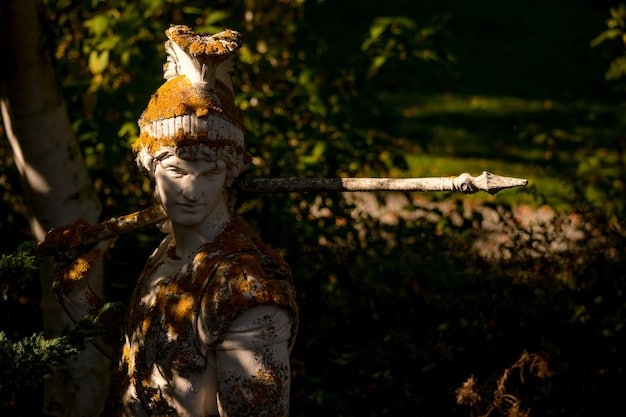
Ideology and Goals
The ideology of the Scoia’tael was diverse, ranging from those who sought peaceful coexistence with humans to those who advocated for the complete expulsion of humans from elven lands. However, a common thread united them: the belief that non-human races deserved to live free from oppression and discrimination. Their goals included reclaiming lost territories, achieving political autonomy, and securing equal rights for all non-humans.
The Scoia’tael’s formation was a direct response to the systemic oppression faced by elves and other non-human races. Their guerilla tactics and diverse ideologies allowed them to challenge human dominance and fight for their vision of a more just world.
Key Figures and Leaders
The Scoia’tael Uprising was shaped by the leadership of several key figures, each with their own vision for the future of non-human races. Iorveth, a charismatic and ruthless commander, and Francesca Findabair, a powerful elven sorceress and queen, stand out as prominent leaders who rallied their followers and led the fight against human oppression.
Iorveth: The Ruthless Commander
Iorveth is a legendary figure within the Scoia’tael, known for his uncompromising stance against human oppression. He is a skilled warrior and strategist, inspiring fierce loyalty among his followers. Iorveth’s methods are often brutal, and he is willing to resort to violence and terror to achieve his goals. He is a symbol of elven resistance and a controversial figure in the history of the Northern Kingdoms.
Francesca Findabair: The Elven Queen
Francesca Findabair, also known as Enid an Gleanna, is one of the most powerful sorceresses in the world and the ruler of Dol Blathanna, an elven kingdom established with the help of Nilfgaard. She is a complex character, torn between her desire to protect her people and her ambition to restore elven power. Her alliance with Nilfgaard is controversial, but she believes it is the only way to secure a future for her people.
- Iorveth: A charismatic and ruthless commander.
- Francesca Findabair: A powerful elven sorceress and queen.
- Their leadership shaped the direction of the Scoia’tael.
- Their actions were driven by a desire for elven autonomy and justice.
The key figures of the Scoia’tael, such as Iorveth and Francesca Findabair, played a crucial role in shaping the uprising and leading the fight against human oppression. Their actions, though often controversial, were driven by a deep-seated desire for elven autonomy and justice.
The Impact on Human-Elf Relations
The Scoia’tael Uprising had a profound impact on the relationship between humans and elves in the world of The Witcher. The conflict exacerbated existing tensions, deepened prejudices, and led to a cycle of violence and retaliation. The uprising served as a stark reminder of the deep-seated animosity between the two races and the challenges of achieving peaceful coexistence.
Escalation of Violence and Prejudice
The Scoia’tael’s attacks on human settlements and military targets led to brutal reprisals by human forces. Innocent elves and other non-humans were often targeted, fueling further resentment and driving more individuals to join the rebellion. This cycle of violence and retaliation deepened the chasm between humans and elves, making reconciliation increasingly difficult.
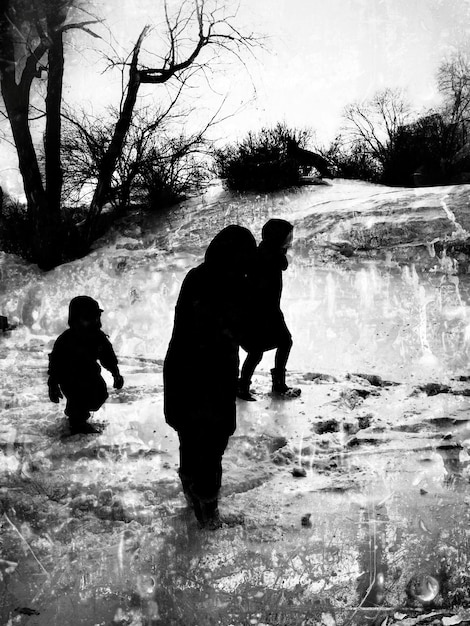
The Cycle of Retaliation
The violence committed by both sides created a vicious cycle of retaliation, with each act of aggression prompting a response in kind. This cycle perpetuated the conflict and made it difficult to break free from the spiral of hatred and violence. The scars of the uprising continue to haunt the relations between humans and elves long after the fighting has ceased.
The Scoia’tael Uprising left a lasting scar on the relationship between humans and elves, exacerbating existing tensions, deepening prejudices, and perpetuating a cycle of violence and retaliation. The conflict serves as a cautionary tale about the dangers of unchecked oppression and the challenges of achieving peaceful coexistence in a world marred by prejudice and hatred.
Moral Ambiguity and the Witcher’s Role
The conflict between the Scoia’tael and humans presents a moral dilemma for Geralt of Rivia, the protagonist of The Witcher series. As a witcher, Geralt is tasked with remaining neutral in political conflicts and focusing on hunting monsters. However, the Scoia’tael Uprising forces him to confront the complexities of prejudice, oppression, and the consequences of choosing sides.
Geralt’s Neutrality and Moral Dilemmas
Geralt’s neutrality is constantly tested by the Scoia’tael Uprising. He is often forced to choose between helping humans who are perpetrating oppression and supporting elves who are resorting to violence. These choices force him to confront his own moral compass and question the notion of absolute neutrality in a world filled with injustice.
The Consequences of Choosing Sides
Geralt’s decisions regarding the Scoia’tael often have far-reaching consequences. Whether he chooses to help or hinder the elves, his actions can impact the lives of countless individuals and alter the course of the conflict. This highlights the moral weight of his choices and the responsibility he bears as a figure of power in a world torn apart by conflict.
- Geralt’s neutrality is constantly tested.
- He faces moral dilemmas when dealing with the Scoia’tael.
- His choices have far-reaching consequences.
- The uprising forces him to confront the complexities of prejudice and oppression.
In conclusion, the Scoia’tael Uprising presents a complex moral landscape for Geralt of Rivia, forcing him to confront the challenges of neutrality, the consequences of choosing sides, and the pervasive nature of prejudice and oppression in the world of The Witcher.
The Scoia’tael in the Broader Political Landscape
The Scoia’tael Uprising is not an isolated conflict; it is interwoven with the broader political machinations of the Northern Kingdoms and the Nilfgaardian Empire. The uprising is often exploited by both sides to further their own strategic goals, highlighting the complex interplay between ethnic conflict and geopolitical ambition.
Exploitation by the Northern Kingdoms and Nilfgaard
The Northern Kingdoms often portray the Scoia’tael as ruthless terrorists, using their actions to justify oppressive measures against non-human populations. The Nilfgaardian Empire, on the other hand, sometimes supports the Scoia’tael as a means of destabilizing the Northern Kingdoms and weakening their resistance to Nilfgaardian expansion. This manipulation demonstrates how the Scoia’tael are often pawns in a larger political game.
The Interplay of Ethnic Conflict and Geopolitics
The Scoia’tael Uprising highlights the complex interplay between ethnic conflict and geopolitical ambition. The grievances of the elves and other non-human races are exploited by larger political entities to achieve their own strategic goals. This dynamic underscores the importance of understanding the broader political context when analyzing the motivations and consequences of the uprising.
The Scoia’tael Uprising is deeply embedded in the broader political landscape of The Witcher universe, serving as a tool for both the Northern Kingdoms and the Nilfgaardian Empire to advance their strategic interests. This exploitation highlights the complex interplay between ethnic conflict and geopolitical maneuvering, adding another layer of complexity to the Scoia’tael’s struggle.
Legacy and Lasting Impact
The Scoia’tael Uprising, though ultimately unsuccessful in achieving its goals of elven autonomy and equality, left a lasting legacy on the world of The Witcher. The uprising exposed the deep-seated prejudices and inequalities that plagued human-elf relations, forcing a reckoning with the systemic oppression faced by non-human races. Its impact can be seen in the ongoing struggles for equality and justice in the Continent.
The uprising demonstrated the cost of unchecked prejudice and intolerance, highlighting the importance of challenging discriminatory practices and promoting understanding and empathy between different cultures and races. While peace remains elusive, the uprising sparked a dialogue that continues to shape the future of human-elf relations.
| Key Point | Brief Description |
|---|---|
| 📜 Historical Oppression | Elves and other non-humans faced systemic discrimination. |
| ⚔️ Scoia’tael Formation | Formed to resist human expansionism and fight for their rights. |
| 🏹 Guerilla Tactics | Used forests to their advantage, ambushing human forces. |
| ⚖️ Moral Ambiguity | The conflict forces characters like Geralt to make tough choices. |
FAQ
▼
Scoia’tael translates to “Squirrels” in the Elder Speech, the language of the elves. It’s a symbolic name adopted by the elven guerilla fighters to represent their agility and resourcefulness in the forests.
▼
Their goals varied, but generally centered around reclaiming lost territories, achieving political autonomy from human kingdoms, and securing equal rights and treatment for all non-human races in the Continent.
▼
Key leaders included figures like Iorveth, a skilled and ruthless commander, and Francesca Findabair, a powerful elven sorceress and the ruler of Dol Blathanna. Both played significant roles in shaping the Scoia’tael’s actions.
▼
The Scoia’tael Uprising significantly worsened human-elf relations. It fueled a cycle of violence and retaliation, deepening prejudice and making peaceful coexistence much more difficult to achieve in the long run.
▼
As a witcher, Geralt often found himself caught between the Scoia’tael and humans, forcing him to make difficult moral choices. His neutrality was constantly tested, and his decisions had far-reaching consequences for all involved.
Conclusion
The Scoia’tael Uprising serves as a stark reminder of the consequences of unchecked prejudice and the enduring power of resistance. The elves’ fight for autonomy and justice, though fraught with moral complexities, continues to resonate within the world of The Witcher, prompting reflection on the nature of conflict, the challenges of coexistence, and the enduring quest for equality.
